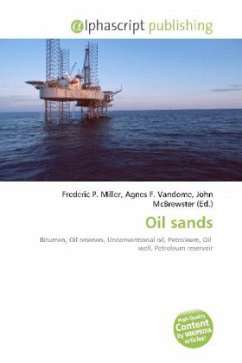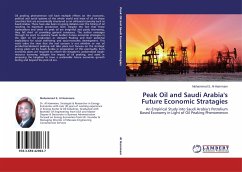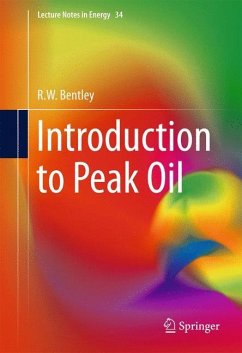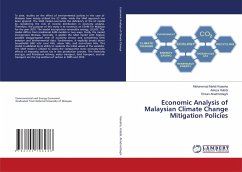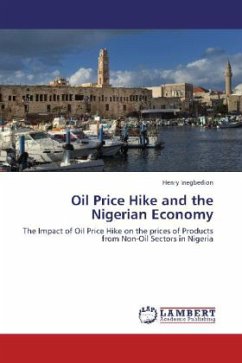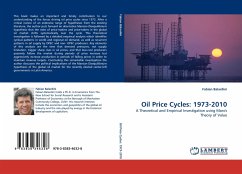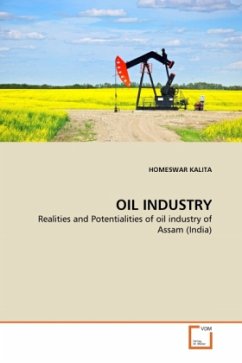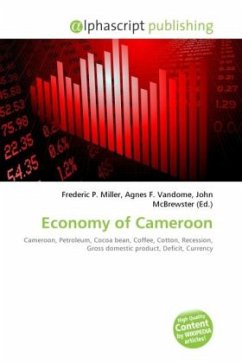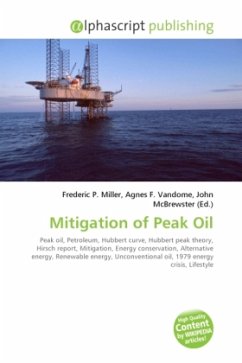
Mitigation of Peak Oil
Versandkostenfrei!
Versandfertig in 6-10 Tagen
39,99 €
inkl. MwSt.

PAYBACK Punkte
20 °P sammeln!
The mitigation of peak oil is the attempt to delay the date and minimize the social and economic impact of peak oil by reducing the world's consumption and reliance on petroleum. By reducing petroleum consumption, mitigation efforts seek to favorably change the shape of the Hubbert curve, which is the graph of real oil production over time predicted by Hubbert peak theory. The peak of this curve is known as peak oil, and by changing the shape of the curve, the timing of the peak in oil production is affected. An analysis by the author of the Hirsch report showed that while the shape of the oil...
The mitigation of peak oil is the attempt to delay the date and minimize the social and economic impact of peak oil by reducing the world's consumption and reliance on petroleum. By reducing petroleum consumption, mitigation efforts seek to favorably change the shape of the Hubbert curve, which is the graph of real oil production over time predicted by Hubbert peak theory. The peak of this curve is known as peak oil, and by changing the shape of the curve, the timing of the peak in oil production is affected. An analysis by the author of the Hirsch report showed that while the shape of the oil production curve can be affected by mitigation efforts, mitigation efforts are also affected by the shape of Hubbert curve. For the most part, mitigation involves fuel conservation, and the use of alternative and renewable energy sources. The development of unconventional oil resources can extend the use of petroleum, but does not reduce consumption.



